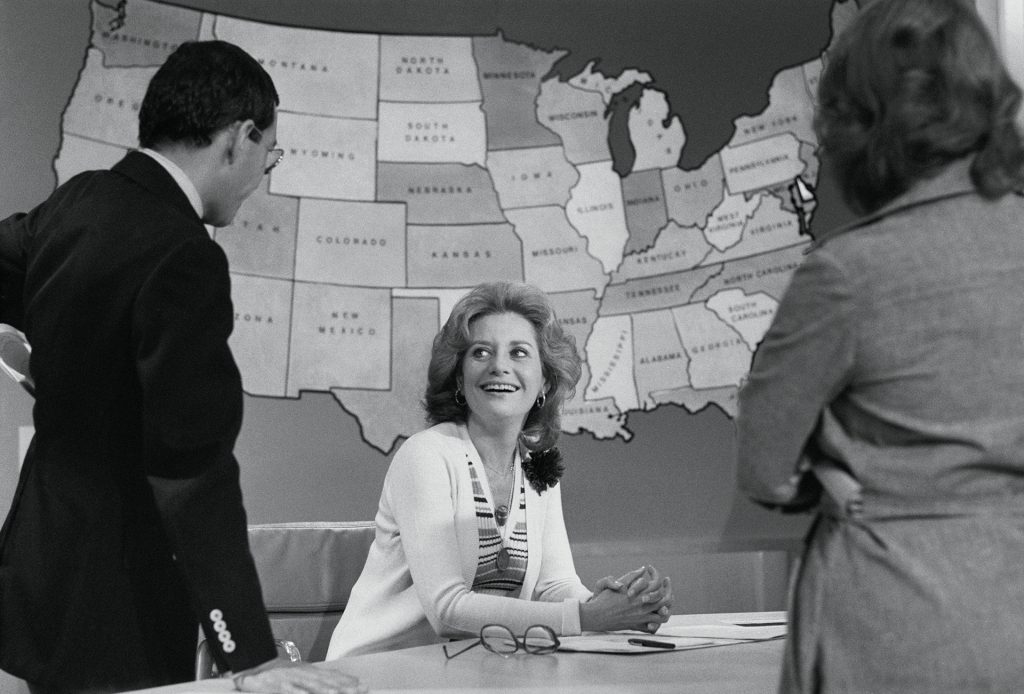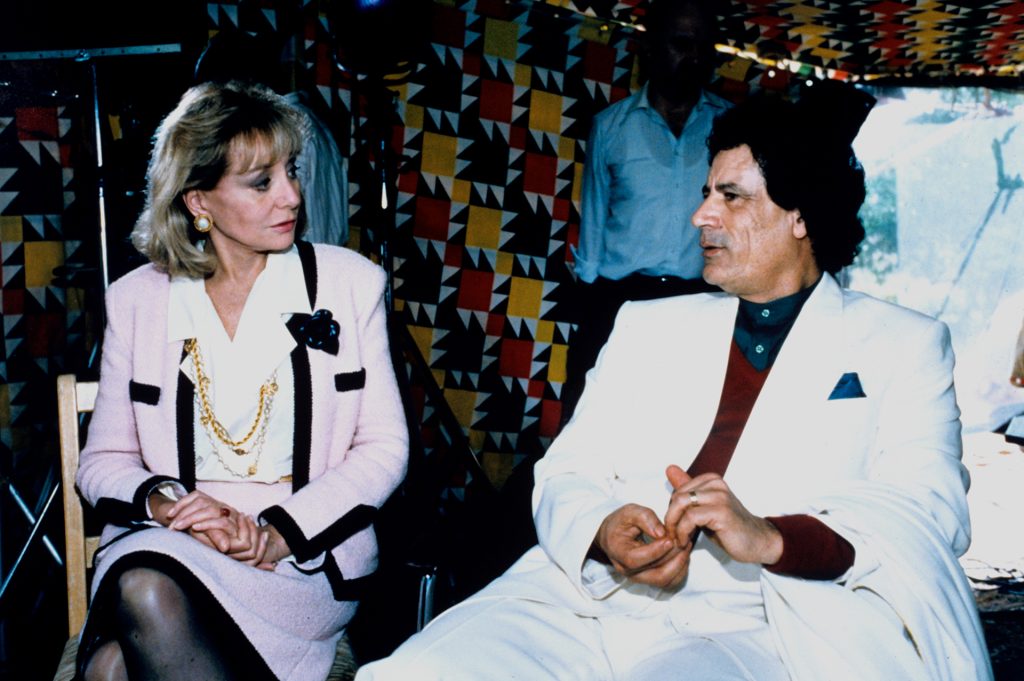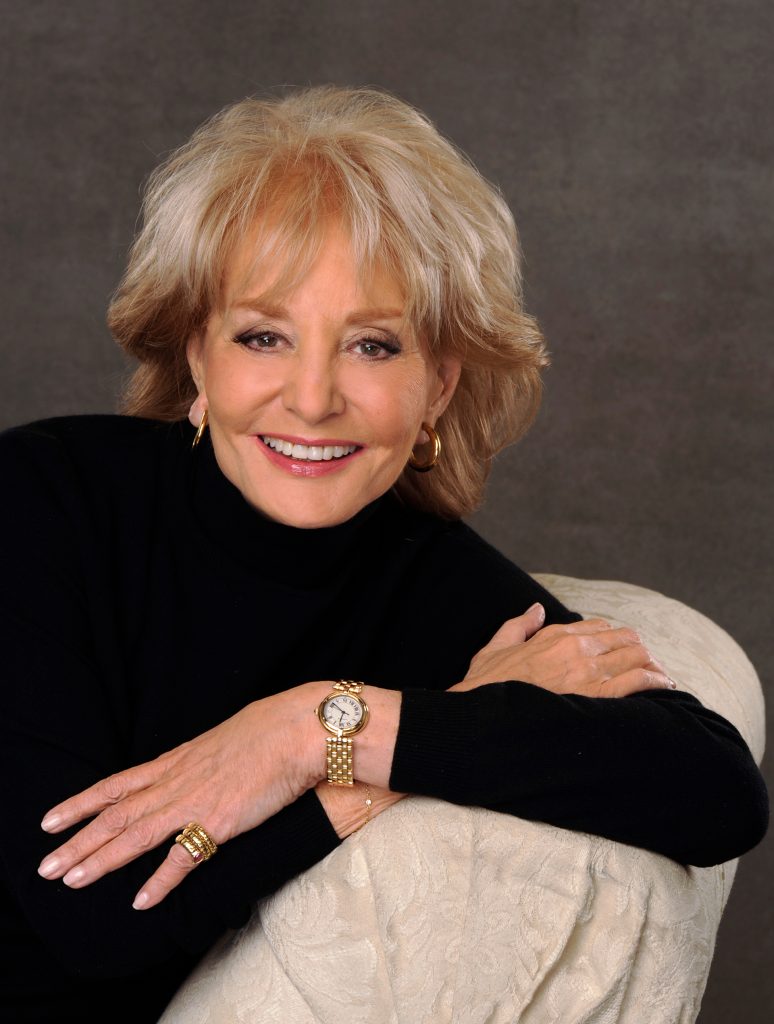This is a Barbara Walters tell-all unlike any other.
From ABC News Studios and Imagine Documentaries comes a new documentary film, Barbara Walters Tell Me Everything, now streaming on Hulu and Hulu on Disney+. Directed by Emmy® Award winner Jackie Jesko, it chronicles the life and career of a charming, fearless, insecure, and persistent journalist — one whose must-see interviews with celebrities, politicians, and other high-profile subjects made her a household name.
Disney Legend Walters spent five decades in front of the camera, and, in doing so, forever changed the American media landscape. She broke ground as the first woman to co-anchor a national news program, and against all odds, continued to excel in the male-dominated world of broadcast journalism. But success came at a cost, and the film reveals the personal sacrifices she made to shatter glass ceilings and pave the way for others. Featuring never-before-seen footage from ABC News’ archives, along with new interviews from people who knew and worked with Walters, the film holds nothing back — just as she would’ve wanted.
In an exclusive Q&A, Muriel Pearson, executive producer, ABC News Studios, and David Sloan, senior executive producer, ABC News Studios, reveal what made Walters so singular.
There has never been anyone like Barbara Walters, before or since. Why was now the right time to tell her story — and what do you hope viewers take away from this film?
Muriel Pearson (MP): Barbara was such a groundbreaker for women in this industry, and it’s always great to be reminded of that. Barbara was fearless; she would’ve told us to be fearless, too. She would have spoken the truth. She was such a maverick journalist.
David Sloan (DS): What Barbara represented, in terms of mid-century American journalism, is sort of preserved in amber. Tens of millions of people watched her interview Monica Lewinsky; if you walked out onto a city street in New York, you would see the TV flickering in the windows of every apartment building and high rise, glued to that interview. It made for a dimming of the lights for people like Barbara, because now people can take their narrative anywhere. But Barbara was from a different time in news. She would say, “No, you take your narrative to me, and I will communicate it in the best way possible — with dignity — into the world.”

Regarding her fearlessness, Disney Legend Oprah Winfrey is among those interviewed in the film, and she says Barbara “asked the question that nobody had asked — and asked it in a way that always hit a nerve.” What made Barbara such a bold interviewer?
DS: So much of her career is about struggling and striving. She struggled to become a household name amidst all of the trap doors set up by her male colleagues in a male-dominated industry. And then she was always striving to stay on top. One of the things I learned is that Barbara never rested on her laurels. Barbara was always trying to prove herself to herself and to everyone else. That’s what drove her to ask provocative questions that no one else would. It made her stand out, and it got her to the finish line and beyond.
You both knew and worked with Barbara. Did anything in the film surprise you?
DS: I didn’t really know a lot about her early years — the pressure of being the sole breadwinner for her family, what that meant. She had a father who almost went to jail for tax evasion, a mother who didn’t work, and an older sister who had some cognitive challenges. I think she felt that burden early on, and that informed the rest of her career.
MP: I don’t think she ever got over the fact that her father, who was so successful, lost it all. She had to support him as a young woman. That sense of insecurity — the idea that somehow it could vanish in an instant — haunted her into her later days.

How did that insecurity fuel her to go above and beyond? You have to be tenacious to book impossible-to-get interviews with the likes of Fidel Castro and Monica Lewinsky.
DS: Because of her background, I think there was a sense of, ‘I have to.’ She was always trying to be perfect. Perfectionism was a big part of who she was, and she wanted to do everything perfectly — to always succeed, to always win. She was crafty about it, and she had connections. And Barbara had charm. Rapport-building was a huge part of her arsenal.
MP: The Monica Lewinsky interview was a perfect example of her being crafty. A lot of people went through the front door; they would call Monica, her lawyers, whomever else. But Barbara realized she could go around all that. It took about a year to get that interview, but she built that bridge with Monica’s dad, with Monica’s attorney, and ultimately with Monica herself. Barbara was strategic in how to approach all those things — like a general.
DS: Her perfectionism could sometimes be wearying for the staff, but at the same time, no one minded working harder for her, because they knew it was in service of something great.

The documentary features a veritable who’s who of talking heads, from Oprah Winfrey and Disney Legend Bette Midler to Joy Behar and Connie Chung. Why did they want to participate — and did any of them share anything especially surprising about Barbara?
DS: Barbara said to Katie Couric, “Well, we’re both not pretty.” Can you imagine the most powerful woman in the industry feeling not pretty enough? Thinking she talked funny? Success was a surprise to her — something preposterous — which is why she worked so hard to overcome that. The name of the memoir is Audition, which is so revealing. Barbara was always auditioning, because she never felt good enough, even though actually she was.
MP: I also thought the revelation from Oprah was remarkable. Barbara told her, “You should really have children.” And, in a very funny way, Oprah replied, “Well, I’m looking at you, and I’m thinking no, because you will always end up not being enough for one side. You will always have to sacrifice your child to the job or vice versa.” It was interesting to hear these two successful broadcasters coming to this revelation about the true price of success.
ABC News is celebrating its 80th anniversary this June. When you look back at Barbara’s accomplishments, how does her work exemplify the very best of the division?
DS: She distinguished us. She made ABC News a destination for the biggest newsmakers of the time. Barbara was a person who participated in the life of her times, and it earned her a very special place in hearts and minds of the viewing public. She made ABC News a destination, and being a magnet for those interviews was her greatest contribution to the division. ABC News thanked her for that and gave her the oxygen to reach the stratosphere.